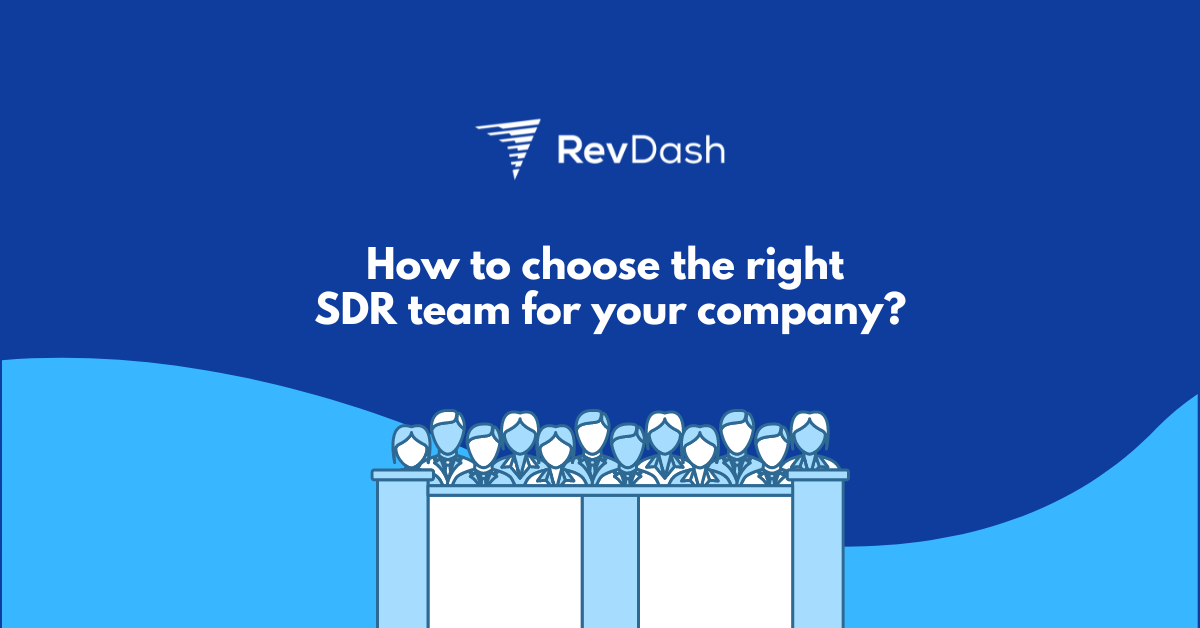Choosing the right Sales Development Representatives (SDR) team can make or break your company’s sales efforts. A strong SDR team not only boosts your lead generation but also enhances your overall sales strategy. So, how do you go about picking the best team for your business?
Let’s get started!
Understanding the Role of an SDR Team
Before diving into the selection process, it’s essential to understand what an SDR team does. Sales Development Representatives are responsible for identifying and qualifying potential leads for your sales team. They are the bridge between marketing and sales, ensuring that leads are properly nurtured and ready for conversion.
Key Responsibilities:
- Prospecting new leads
- Qualifying leads through research and initial outreach
- Setting up meetings or calls for the sales team
- Maintaining CRM systems with up-to-date information
Understanding these core responsibilities will help you identify the skills and traits needed in an SDR team.
Identifying Key Traits and Skills
A successful SDR team should have a blend of skills and traits that enable them to perform effectively. Here are some key qualities to look for:
1. Strong Communication Skills:
SDRs need to communicate clearly and persuasively. They should be able to convey your company’s value proposition and build rapport with potential clients.
2. Persistence and Resilience:
Sales development is a challenging field. Look for individuals who are not easily discouraged by rejection and who can persistently follow up with leads.
3. Research Abilities:
Good SDRs are thorough researchers. They should be able to gather relevant information about prospects to personalize their outreach.
4. Adaptability:
The market and your sales strategy may change. SDRs should be flexible and able to adapt to new tools, techniques, and target industries.
Evaluating Experience and Background
While skills and traits are crucial, the right experience can also make a significant difference. Here’s how to evaluate potential SDR candidates:
1. Relevant Experience:
Look for candidates with experience in sales or customer-facing roles. Experience in your industry can be a plus but is not always necessary.
2. Proven Track Record:
Check for a history of meeting or exceeding targets. This indicates a candidate’s ability to perform under pressure and achieve goals.
3. Educational Background:
While not always a deal-breaker, a background in business, marketing, or a related field can provide a solid foundation for an SDR role.
4. References and Recommendations:
Don’t underestimate the power of a good reference. Previous employers or colleagues can provide insights into a candidate’s work ethic and performance.
Assessing Cultural Fit
Cultural fit is just as important as skills and experience. An SDR team that meshes well with your company culture will be more motivated and productive.
1. Company Values:
Ensure the candidate’s values align with your company’s. This alignment can foster a positive work environment and long-term commitment.
2. Team Dynamics:
Consider how the candidate will fit into your existing team. Look for individuals who are collaborative and can work well with others.
3. Motivation and Goals:
Understand what motivates the candidate. Their personal and professional goals should align with the opportunities your company offers.
Leveraging Technology and Tools
An efficient SDR team utilizes technology to streamline their processes and improve productivity. Here’s what to consider:
1. CRM Systems:
Ensure your SDR team is proficient in using CRM software. This tool is essential for managing leads and tracking interactions.
2. Sales Enablement Tools:
Look for familiarity with tools that enhance sales efforts, such as email automation, social selling platforms, and data analytics.
3. Training and Development:
Invest in ongoing training to keep your SDR team updated on the latest tools and best practices. This not only boosts efficiency but also keeps the team engaged and motivated.
Wrapping Up
Choosing the right SDR team is a critical step in building a robust sales pipeline. By understanding the role, identifying key traits and skills, evaluating experience, assessing cultural fit, leveraging technology, and setting clear expectations, you can assemble a team that drives your company’s growth.
Remember, finding the right SDR team can be challenging, but you don’t have to do it alone.
Revdash can assist you in assembling a dedicated team and handling all aspects of the recruitment process, training, onboarding, day-to-day management, and benefits.
Plus, we can help reduce costs by 30-50%.
Contact us today to learn how we can support your SDR needs!



